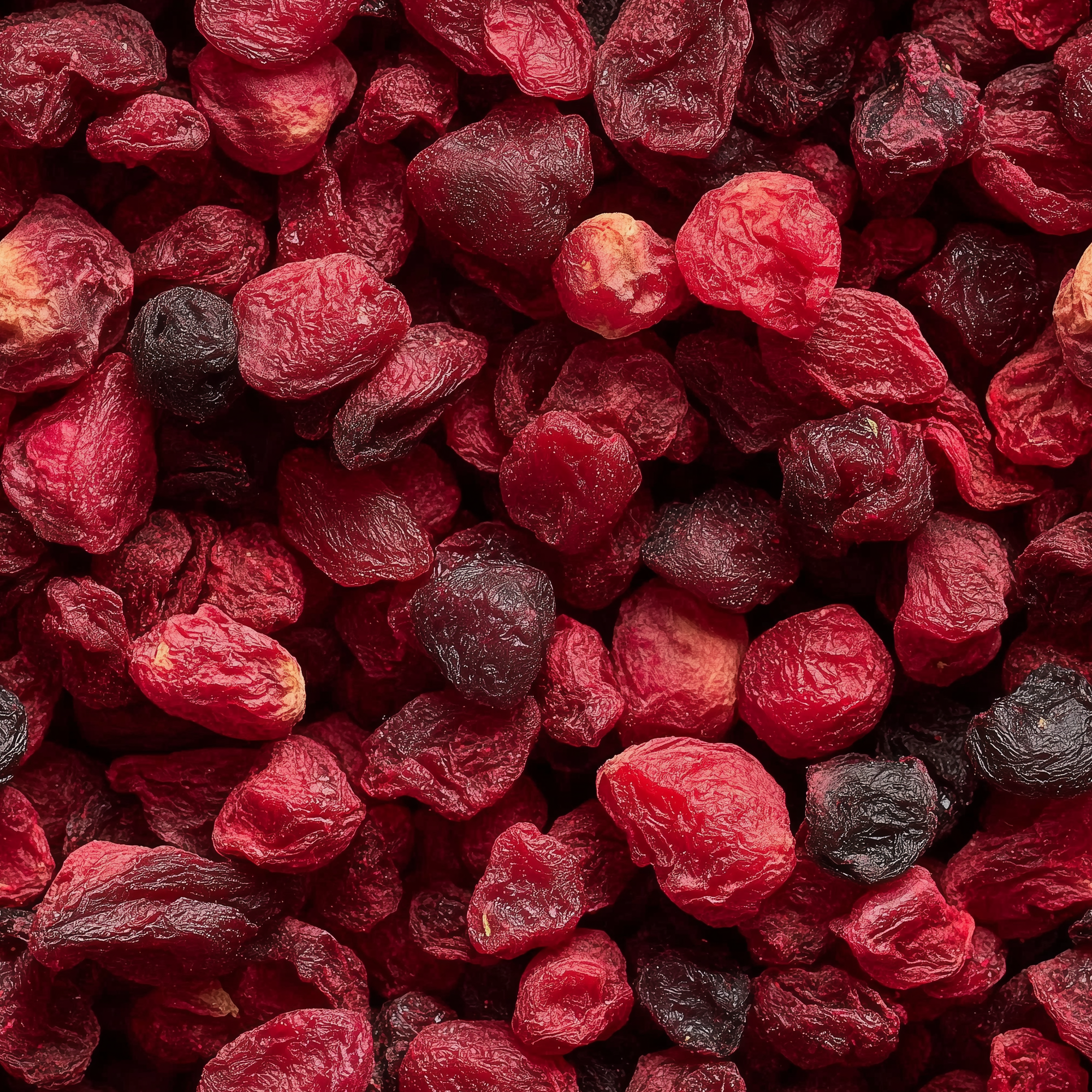

· By Dominic Vaiana
Does Your Dried Fruit Have More Sugar Than a Chocolate Bar?
If you’re reading this, chances are your dried fruit is lying to you. Behind the rustic packaging and “healthy snack” slogans is one of the dirtiest cover-ups in the food industry. What should be a handful of fruit has been mutilated into a sugar-delivery system engineered to keep you hooked, bloated, and sick.
This isn’t food. It’s dessert disguised as nutrition. The bags on your grocery shelf aren’t filled with fruit; they’re filled with chemical bribes, glossy dyes, and sweeteners that belong in a soda can, not your bloodstream.
We’re going to pull the lid off the deception. Here’s how much sugar is really hiding in your dried fruit, the industrial sweeteners that keep it shelf-stable, and why this isn’t a “snack” problem—it’s a public health crisis.
How Much Sugar Is Really in Dried Fruit?
When fruit is dried, the sugar concentrates. That’s natural. What isn’t natural is dumping more sugar on top until your “cranberries” are closer to candy than produce. A quarter-cup of the sweetened kind can hit 20 grams of sugar—the same as a candy bar, minus the honesty.
A bag of dried mango? Often 60 grams of sugar or more. That’s a soda in disguise. These brands aren’t selling you fruit; they’re selling you addiction under the pretense of health. And they’ve trained you to think it’s normal.
4 Sweeteners Sabotaging Your Dried Fruit
The industry doesn’t stop with “just a little sugar.” They’ve created a Frankenstein pantry of additives to make dried fruit last longer, taste sweeter, and look prettier than it has any right to. Here’s what’s really going on:
Cane Sugar & Syrups
The most common disguise. “Lightly sweetened” is code for candied beyond recognition. This isn’t balance—it’s sabotage.
High-Fructose Corn Syrup
The cockroach of processed food. Linked to obesity, fatty liver, and insulin resistance, but still showing up in bags of apricots and apples because it’s cheap and addictive.
Fruit Juice Concentrate
Sounds harmless, but it’s just another name for sugar water. “Sweetened with apple juice concentrate” really means “drenched in liquid candy.”
Honey Powder, Malt Syrup & Friends
Endless variations of the same trick: keep you chasing sweetness while pretending it’s wholesome. Different labels, same metabolic chaos.
Why This Is a Health Crisis
This isn’t a small detail on the nutrition label—it’s a global con. Millions of people think they’re making a healthy choice when they grab dried fruit. Parents pack it in lunchboxes, athletes eat it before workouts, office workers stash it in their desk drawers.
But in reality, many of these “health” snacks carry the same sugar load as candy. They spike blood sugar, wreck teeth, and feed the very chronic diseases people are trying to avoid. Worse, they normalize sugar addiction under the guise of wellness.
Every time you eat sweetened dried fruit, you’re not choosing health—you’re buying into a deception that props up Big Food’s balance sheet at the expense of your own.
How to Spot (and Stop) the Sweetener Scam
If you don’t want your pantry doubling as a chemical testing site, here’s how to fight back:
- Read the label. There should be one ingredient: fruit. Anything more, and you’re dealing with a scam.
- Watch for code words. “Evaporated cane juice.” “Glucose-fructose.” “Fruit juice concentrate.” These aren’t health—they’re loopholes.
- Know the worst offenders. Cranberries, pineapple, cherries, and mango are almost always sugar-soaked hostages.
- Respect the portion. Even clean dried fruit is calorie-dense. A serving is a handful—not a bag inhaled in one sitting.
Mortal Munchies: Fruit Without the Fraud
Dried fruit doesn’t need syrups, dyes, or engineered sweetness. Fruit was fine before the food industry corrupted it. It’s still fine when you leave it alone.
That’s the foundation of Mortal Munchies: one ingredient, zero compromises. Our Bad Apple, Malicious Mango, Belligerent Blueberry, and Cherry Bomb are stripped of the lies. No added sugars. No sulfites. No fake concentrates. Just fruit—clean, savage, and unapologetic.
When you eat Mortal Munchies, you’re not participating in Big Food’s deception. You’re choosing food that doesn’t need a marketing team to justify itself.


